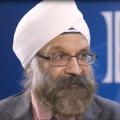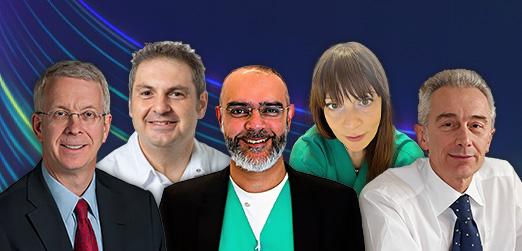- Home
- Hybrid Ablation: A New Standard of Care in Long Standing Persistent Atrial Fibrillation?
Hybrid Ablation: A New Standard of Care in Long Standing Persistent Atrial Fibrillation?
- Heart Rhythm
Available Credit:
- 1.00
Course Published On:
Course Expiry Date:

Overview
The cornerstone of atrial fibrillation (AF) ablation is electrical isolation of the pulmonary veins (PV). In patients with non-paroxysmal AF, PV isolation alone is insufficient, and one needs to modify the atrial arrhythmogenic substrate. AF ablation is now a common procedure and mostly performed using a transvenous, endocardial approach with catheters. For patients with persistent AF however, this procedure is not sufficient.
There is a growing movement towards a convergent procedure management strategy, used alongside standard catheterisation techniques to optimise patient outcomes. More and more research suggests that an integrated approach involving multidisciplinary teams (of electrophysiologists and surgeons) may lead to improved success rates and increased patient satisfaction.
This programme, first presented at EHRA 2022, brings together thought-leaders from across Europe to discuss the role of hybrid ablation in treating long-standing persistent AF. Moderator, Prof John Camm (St George’s University of London, UK) leads the faculty to explore the need for the hybrid approach, the science supporting its implementation and insights from experienced practitioners.
Support Statement
This programme is supported by an unrestricted educational grant from AtriCure Inc.
Disclosure
In compliance with EBAC guidelines, all speakers/chairpersons participating in this programme have disclosed or indicated potential conflicts of interest which might cause a bias in the presentations. The Organising Committee/Course Director is responsible for ensuring that all potential conflicts of interest relevant to the event are declared to the audience prior to the CME activities.
Terms & Conditions
Radcliffe Education requires contributors to our CME programmes to disclose any relevant financial relationships that have occurred within the past 12 months that could create a conflict of interest. These will be identified in the faculty section if applicable.
The session, 'Hybrid Ablation: A New Standard of Care in Long Standing Persistent Atrial Fibrillation?’ is accredited by the European Board for Accreditation in Cardiology (EBAC) for 1 hour of external CME credits.
Each participant should claim only those hours of credit that have actually been spent in the educational activity. EBAC works according to the quality standards of the European Accreditation Council for Continuing Medical Education (EACCME), which is an institution of the European Union of Medical Specialists (UEMS).
Through an agreement between the European Board for Accreditation in Cardiology and the American Medical Association, physicians may convert EBAC External CME credits to AMA PRA Category 1 Credits™. Information on the process to convert EBAC credit to AMA credit can be found on the AMA website.
Instructions to Participants
There is no fee for taking part in this online learning activity.
Activities are designed to be completed within 60 minutes and must be completed by the registered user. Physicians should only claim credits for time spent on the activity. To successfully earn credit, participants must complete the activity in full in the indicated time frame.
To complete the course and claim certification participants must:
- Read the course outline information supplied and complete pre-test questions if supplied prior to starting the activity. Users must read and study the activity in its entirety before completing the post-test questions.
- Your results will be automatically saved and if a pass score is achieved (where applicable), you may be eligible to claim credit for the activity and receive a certificate of completion.
Target Audience
- Electrophysiologists
- General Cardiologists
- Allied health professionals engaged in the treatment of persistent AF
Learning Objectives
Upon completion of this activity, participants will be able to:
- Describe the fundamental steps in hybrid ablation
- Recall the clinical outcomes from randomised controlled trials and real-world data supporting the use of hybrid ablation in persistent AF
- Select ideal patient candidates for hybrid ablation
- Consider the existing equipment and skill requirements for successful hybrid ablation
Module |
Title |
Duration |
Speakers |
|---|---|---|---|
| Session 1 | Introduction | A John Camm | |
| Session 2 | Why Hybrid Ablation? | Jaswinder Gill | |
| Session 3 | The Hybrid Convergent Procedure Explained | Yuri Blaauw | |
| Session 4 | Building A Standard Of Care: Insight From An Experienced Operator | Claudio Tondo | |
| Session 5 | Key Considerations For Electrophysiologists, And Close | A John Camm |
Course Director
Panelist






